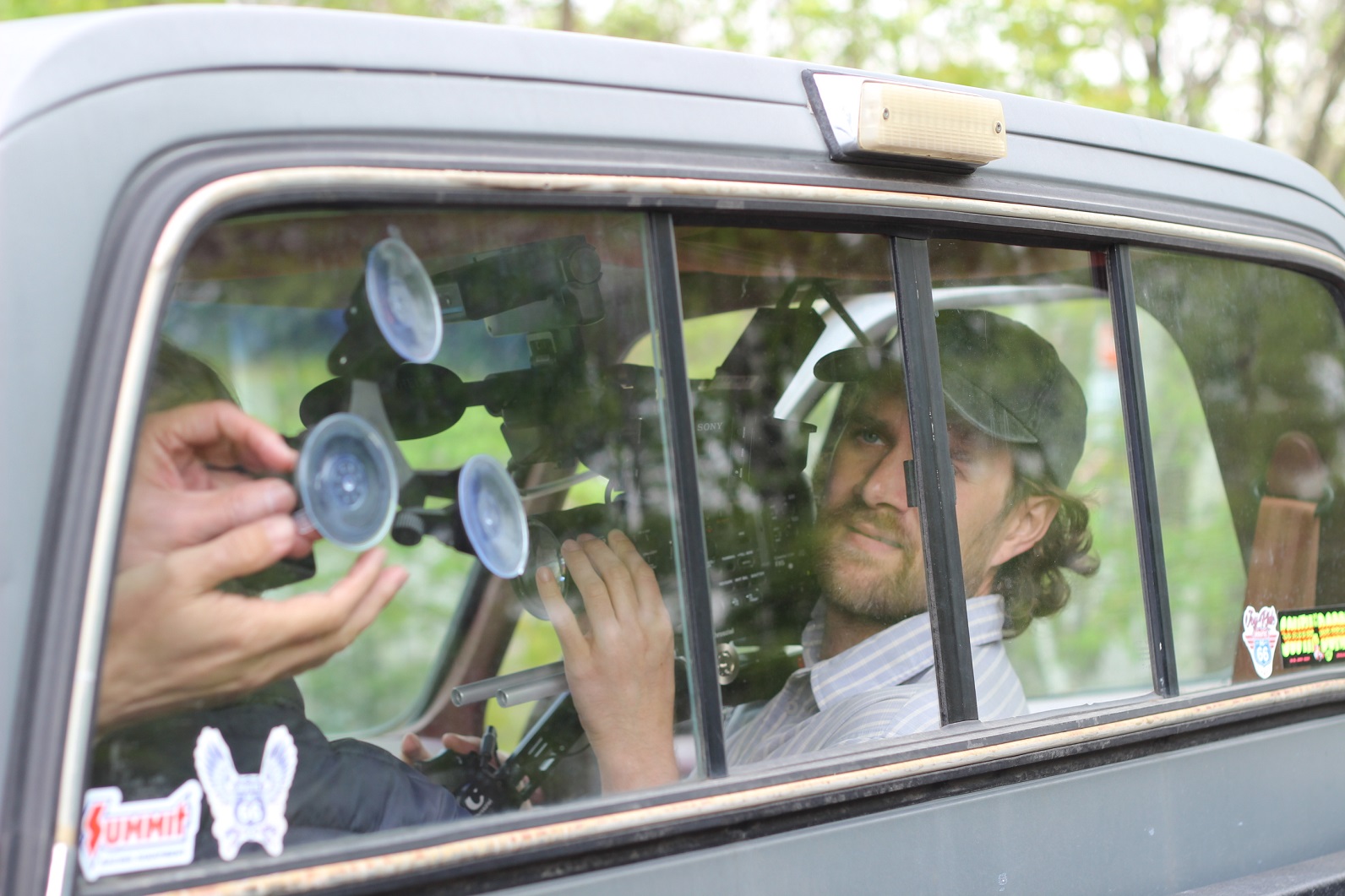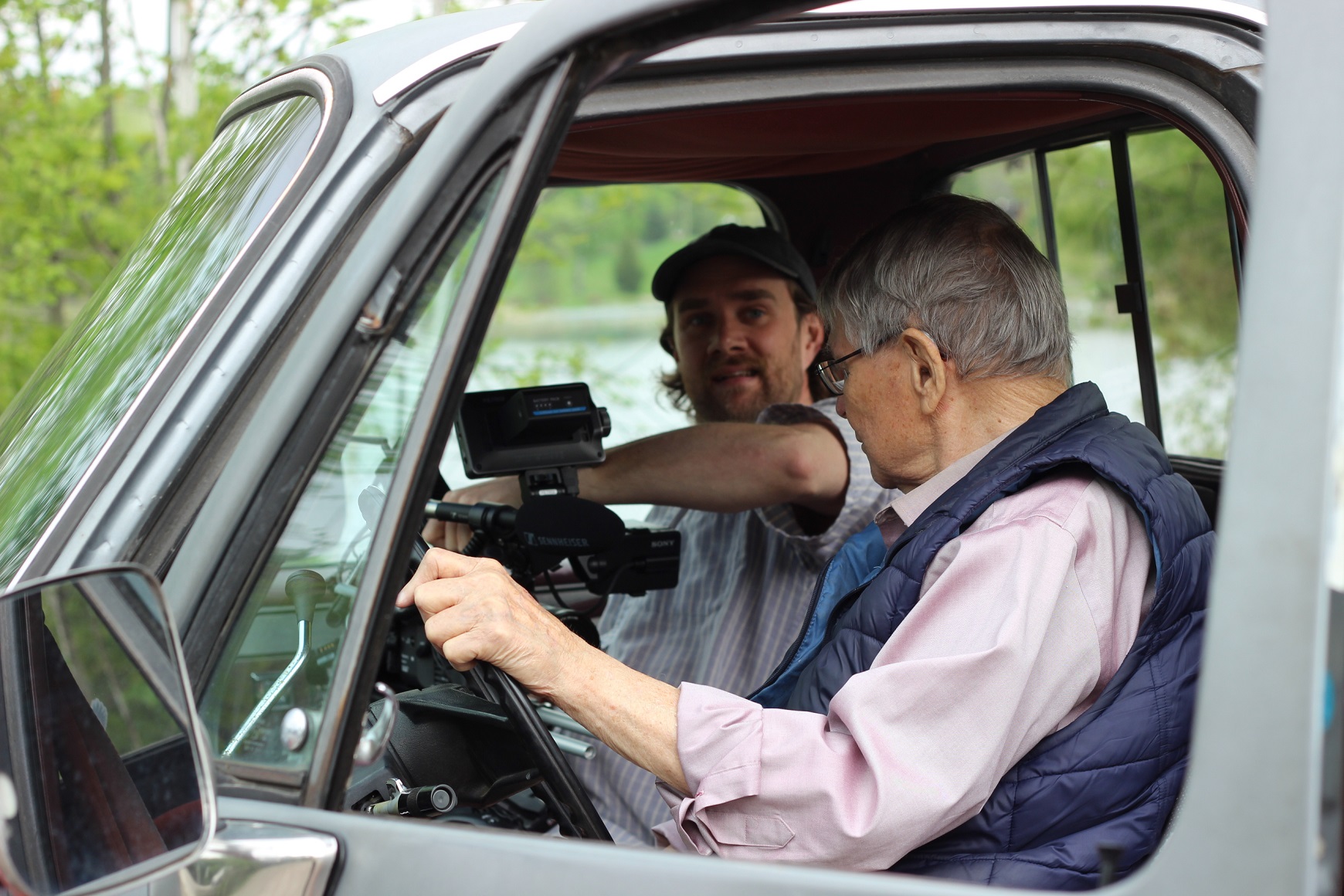
Photo by Sam Hoevenaar.
Ottawa is still growing as a filmmaker’s city. What films are made here tend to be fairly small-scale, with major productions generally being more inclined to major sites of industry in Toronto or Vancouver. But that hasn’t stopped local documentarian Conor DeVries, 35, from plumbing fascinating stories out of all corners of the city, from local legends to social activism to the city’s shawarma history.
“There’s amazing films to be made here in Ottawa,” DeVries says. “It’s not an oversaturated market.” DeVries has made a living as a freelance videographer and a fully-independent documentary filmmaker since 2018, but his path to this career was a roundabout one.
Growing up in Ottawa raised by two professional photographers, the director’s background has all the trappings of a cliched “movie magic” origin story. But his parents’ love of photography never quite took, and DeVries took an undergraduate program in business. Although he enjoyed his studies, the realities of the corporate world made him question this path.

Photo by Sam Hoevenaar.
Disillusioned with the business world, DeVries found his interest in photography kindled by a solo trip through Central and South America.
“All those years later, in my mid-twenties, I was taking a lot of photos as I was travelling, and getting more into photography as a hobby,” he says. “That was when I realized, oh, I actually really love this thing my parents always did.”
Upon returning to Canada, he decided to go to school for documentary filmmaking. He was drawn to its potential to prompt meaningful conversations, challenge power, and broaden perspectives.
“I’ve learned a lot about the society I live in through documentaries – I became a vegetarian from watching documentaries about the food industry! It can be beautiful, but it can also really invoke change in society.”
DeVries now faced one problem: he needed a portfolio, and he had never made a documentary or worked on a film set. Back in his hometown and desperately in need of a subject for a film, DeVries and some friends decided over drinks that he should look into “what Ottawa is all about”: shawarma.

DeVries in March 2022. Photo by Rick Dobson.
Armed with only a handheld camera and a simple question, DeVries embarked on a quest that eventually turned into 2015’s Shawarma City, a strange and compelling inquiry into the enigmatic characters of Ottawa’s shawarma scene. The film takes on a first-person perspective, following DeVries’s gonzo search for the elusive former owner of Marroush.
“The movie was a bit of a cult hit around Ottawa,” he jokes. “I think it’s my most popular film to date, at least on YouTube, and it was just something I made with a pretty cheap camera and no real idea what I was doing.”
Shawarma City taught DeVries some valuable lessons about interviewing and chasing leads – it also gained him entrance to a documentary program at Toronto Metropolitan University (TMU). His studies both refined his craft and somewhat focused his ambitions, prompting DeVries to focus primarily on social issues in his films.
His 2018 graduate project, The Right to Learn, dealt with barriers to higher education–since then, he has explored food waste and rampant logging in Algonquin park. These subjects emerge from various sources: personal interest, current events, even recommendations from friends and family.
“As long as I feel the subject is interesting when I dig into it, then I’m totally open to anything,” he said. “You’ve just got to keep your eyes and ears open for something that interests you.”
After graduating, DeVries relocated once again to Ottawa – a city with film industry that is much smaller than Toronto’s, but which has shown signs growth in recent years.
“It has grown,” says Jith Paul, a local filmmaker who co-founded the Ottawa Canadian Film Festival (OCan) in 2015. “In the last five or six years, people are getting to know about each other and doing collaborations, more-so than when I first started.”
Paul explained that although there are fewer productions, each filmmaker in Ottawa is “a bigger fish in a smaller pond” – local films have a better chance of exposure here than in a more saturated market like Toronto.
This growth has coincided with an explosion of local film festivals. When OCan first started, Paul would have estimated no more than six festivals in Ottawa – now there is one or more almost every month. This allows filmmakers within the community to connect with audiences, producers, and each other.

Filming the NAC’s Karanfil/Carnation in 2021. Photo by Melanie Mathieu.
“It’s very nurturing, and it’s a very collaborative environment in town,” he says.
DeVries is, self-admittedly, not “a big networking guy,” but he’s got good business sense and has made some connections through Ottawa’s festivals. The festivals are important exposure, but the fully independent filmmaker has some qualms with the circuit. Pitching a new project to festivals is a costly process with no guarantee of making connections, or even attracting a crowd.
“You’ve got to keep doing it, because there will hopefully be a time when you’re there at the right time and the right person sees it. You don’t want to miss that opportunity,” says DeVries, but he admits that festivals “can be a bit of a racket.”
In the interest of starting conversations, DeVries is focused on getting as many eyes on his work as he can, and he has done exactly this by organizing screenings for The Right to Learn and Logging Algonquin across Canada.
For now, DeVries plans to continue his career in Ottawa. Having managed to get by more or less on his own thus far, he expressed a newfound eagerness to connect with the community of local filmmakers and further embrace the city’s unique beauties and stories.
He is currently planning a film in which he’ll take his late father’s motorcycle and retrace the steps of a trip his dad once took. The intimate project is, in one sense, a stark departure from DeVries’s past work. In another, it seems a perfect fusion of his focus on universal themes, his slow embrace of his hometown, and the poetic travelogue films that he aspired to emulate in his youth.
“I was younger and I was in the middle of exploring the world, and feeling like that was all I wanted to do. With age, with time, your perspectives change,” he says. “I like the roots I’m growing here, and that’s going to change what kind of films I make—and that’s ok.”



.gif)


